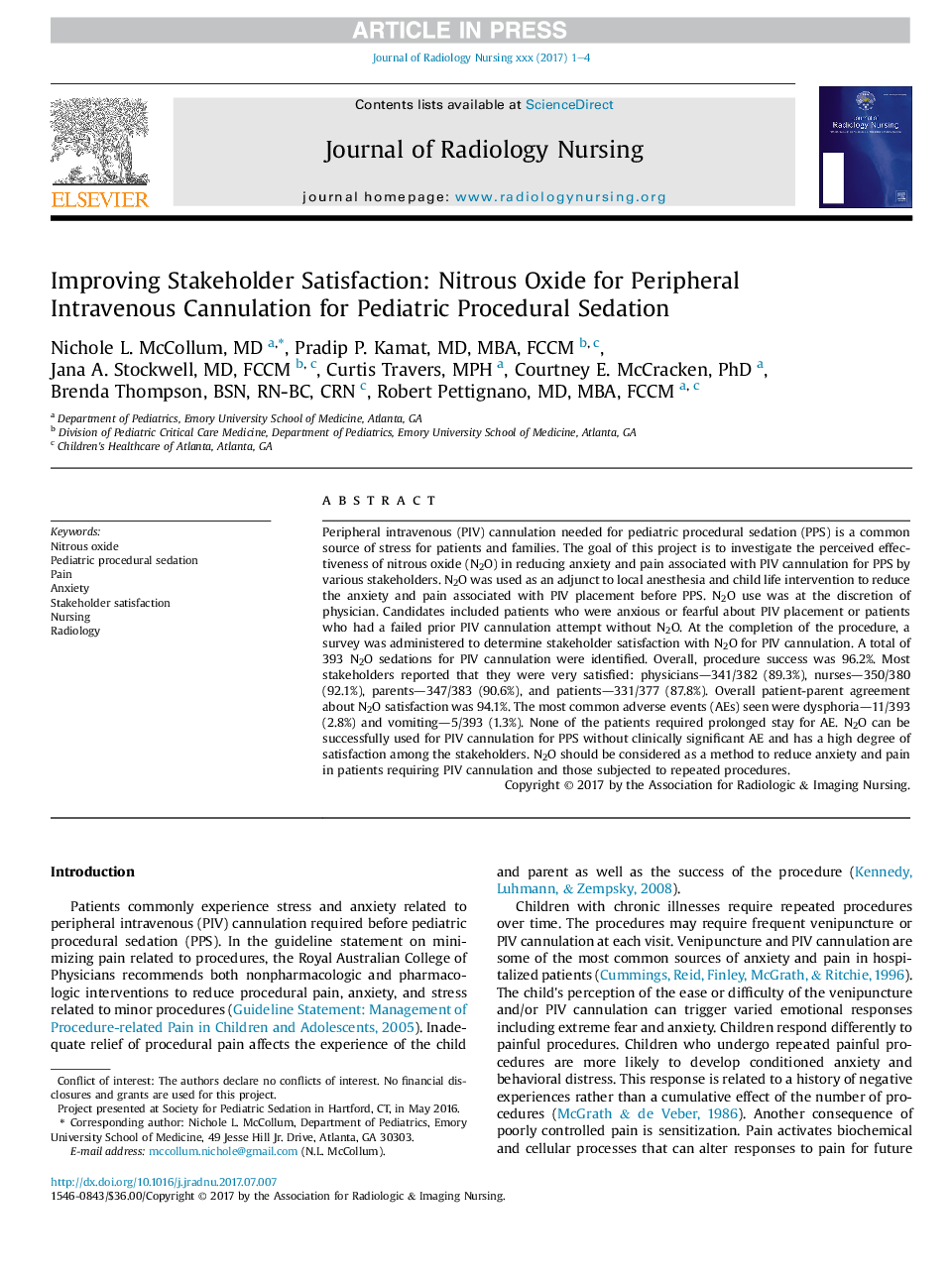ترجمه فارسی عنوان مقاله
بهبود رضایت ذینفعان: اکسید نیتریک برای کانال های داخل وریدی محیطی برای نشانه های پروتئینی کودکان
عنوان انگلیسی
Improving Stakeholder Satisfaction: Nitrous Oxide for Peripheral Intravenous Cannulation for Pediatric Procedural Sedation
| کد مقاله | سال انتشار | تعداد صفحات مقاله انگلیسی |
|---|---|---|
| 119482 | 2017 | 4 صفحه PDF |
منبع

Publisher : Elsevier - Science Direct (الزویر - ساینس دایرکت)
Journal : Journal of Radiology Nursing, Volume 36, Issue 4, December 2017, Pages 238-241
ترجمه کلمات کلیدی
اکسید نیتروژن، آرام بخش روحی اطفال، درد، اضطراب، رضایت ذینفع، پرستاری، رادیولوژی،
کلمات کلیدی انگلیسی
Nitrous oxide; Pediatric procedural sedation; Pain; Anxiety; Stakeholder satisfaction; Nursing; Radiology;

